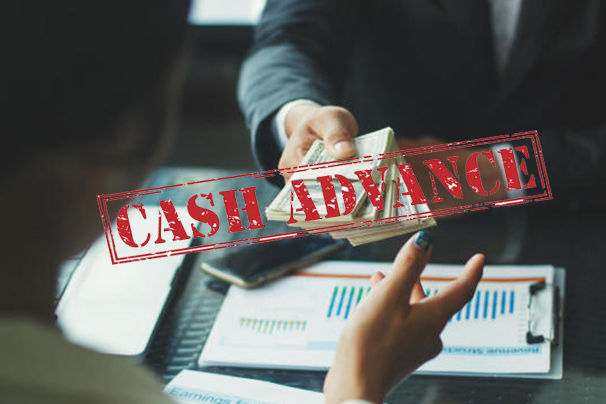If you need money urgently to cover an emergency and you don’t have enough, then one way to quickly get cash is by taking out a cash advance on your credit card. This involves withdrawing money against the limit on your credit card.

A cash advance is a way of getting money without applying for a loan, and they don’t require a credit check because the cash is withdrawn from your accounts. However, cash advances have higher interest fees than traditional loans.
What is a Cash Advance?
A cash advance is a short-term loan, mostly borrowed from a financial institution or an alternative lender. It is a service also provided by several credit card issuers. It allows cardholders to withdraw cash against their available credit card limit. However, it involves a separate fee. Some lenders also establish a different credit limit, especially for cash advances.
The interest fee that you will pay for cash advances is usually related to the size of your withdrawal and the period of your repayment. The interest rates are higher than for regular credit card purchases. In addition, most insurers add a fee, which is usually 3% to 5% of the transaction amount.
How Does it Work?
You can start a cash advance in several ways. If you have a credit card with a PIN, you can also use the PIN to withdraw money from an ATM.
Also, if your credit card issuer has a physical branch location. Then you can ask for a cash advance from a teller. If you also have access to checks through your card issuer, then you can write a check to yourself and cash it. As soon as you cash the check, your card issuer starts charging interest on the cash advance.
Types of Cash Advances
There are different types of cash advances offered by lenders and credit card issuers. Here are the common types of cash advances:
Credit Card Cash Advance
A credit card cash advance is a feature that is offered by several credit cards. It is very popular and the money can also be withdrawn either through the ATM, a check, or cash at a bank. Credit card cash advances usually carry an interest rate that is much higher than the rate for regular purchases.
In addition, the interest starts instantly. These cash advances also include a fee, either a percentage of the advanced amount or a flat rate. Also, if you use an ATM to access the money, you will be charged a small fee. Credit card cash advances usually carry a different balance from credit purchases.
However, the monthly payment can be applied to both balances. But if you are only paying the minimum amount when it is due, then the card issuer is allowed to apply it to the balance with a lower interest rate.
Merchant Cash Advances
Merchant cash advances are loans given by companies or merchants to traditional banks. This loan is mostly given to small business owners based on a projection of future sales and past sales. Businesses with less-than-perfect credit make use of cash advances to finance their activities, and these advances are repaid with future credit card receipts.
Payday Loans
Payday loans offer you access to future payments from your employer. In several cases, the payday lender requires proof of income, which includes a previous pay stub. Once the loan is approved, the lender either hands the borrower cash or makes an electronic transfer to the borrower’s account.
These loans are short-term, and they are paid back on the borrower’s next payday. The process is a lot quicker than getting a credit card or cash. To get a payday loan, you need to write a postdated check made out to the lender for the amount that you wish to borrow, which includes the fees. The lender will instantly issue the borrowed amount; however, the lender will wait to cash your check until your next payday.
Cash Advance Terms and Fees
Cash advances are one easy way to cash in instantly; however, they also come with high fees. Before taking out a cash advance, ensure that you review the terms so that you are aware of the high charges.
- Cash advance fee: Your credit card issuer often charges a cash advance fee, which is usually three or five percent of the total amount of every cash advance that you request.
- Separate credit limit: Cash advances also have a separate credit limit that is only a portion of your total credit limit.
- Cash advance APR: cash advances have a separate and, most times, higher interest rate than purchases or balance transfers.
- No grace period: cash advances don’t have a grace period. This means that you will be charged interest from the day you withdraw the cash. This is different from when you purchase with your card.
These are the fees associated with a cash advance.
Does Cash Advance Affect Your Credit Score?
A cash advance doesn’t impact your credit score; however, it can affect it indirectly in several ways. If you take the advance from a credit card, it will increase your outstanding loan balance.
This can increase your credit utilization ratio. Cash advances have a high-interest rate, and if this affects your ability to pay the monthly charges, then this can also affect your credit score. Furthermore, if the cash advance places you over the credit card limit, then your credit score will be affected.
